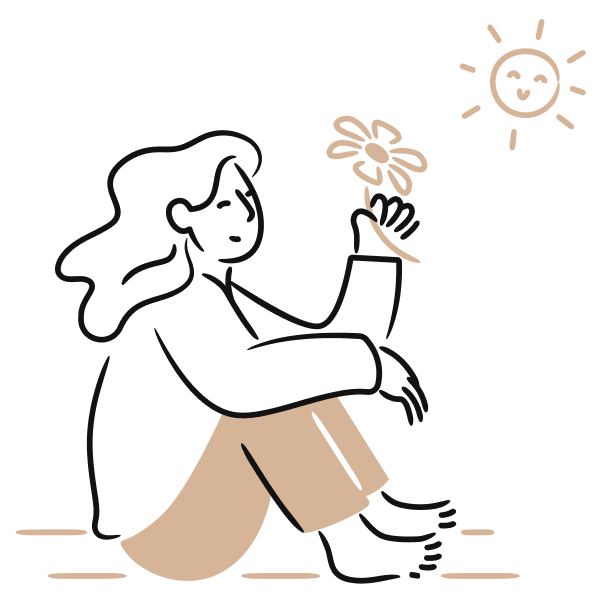Trauma occurs after a distressing event. The same memories keep playing on loop in your mind and you might find yourself experiencing anxious thoughts or flashbacks to the moment in question. But what exactly is trauma and how can you tell if you’re suffering from it?
What Is Trauma?
Trauma is acquired psychological damage, resulting from a stressful, traumatic event. That’s the simplest way to put it. We all experience the feeling of being overwhelmed at one point or another, but sometimes an event makes such an impression on you that you end up traumatized as a result.
This disturbing moment keeps creeping back into your mind in the form of flashbacks and that makes you anxious. You may also experience nightmares related to the event. Some people feel on edge and start to avoid certain situations.
What Does Post-Traumatic Stress Mean?
Post-traumatic stress is the result of trauma. When you’re not able to properly process a life event, you may end up left with a psychological wound. This wound will become a source of stress. If trauma is not properly processed, this can lead to post-traumatic stress disorder (PTSD).
What Causes Trauma?
Trauma is the result of a distressing event. Possible causes include: a life-threatening situation; becoming seriously ill; or sexual assault. Losing a loved one can also cause trauma.
What Are the Different Types of Trauma?
There are two types of trauma.
- One-off trauma: Trauma caused by a single moment in your past that had a detrimental effect on your mental health. This is usually a disturbing event, such as an accident or the death of a loved one.
- Ongoing and complex trauma: This trauma is the result of an accumulation of repeated traumatic experiences. For example, an abusive relationship. Complex trauma causes symptoms that show up in multiple areas of your life, for example both at home and at work.
What Are the Symptoms of Trauma?
There are various symptoms that can arise as a result of trauma:
- Experiencing stress and anxious thoughts.
- Constantly replaying the event in your mind. This may happen during the day in the form of reoccurring flashbacks, but it can also happen at night in the form of nightmares.
- Avoiding things related to the negative event. This could be a place, certain people, or objects, for example.
- Suffering from negative thoughts or a lower mood.
- Feeling like your body is in a constant state of alertness. You’re always prepared for a certain degree of danger, which is usually no longer present.
- Being afraid of your own anxiety. You’re afraid of experiencing this same level of anxiety again.
- Trouble concentrating.
- Experiencing dizziness.
- Trouble sleeping or outbursts of rage.
Note that not everybody experiences the same symptoms of trauma. Each person’s response will be slightly different. Click here to learn more about the types and symptoms of trauma.
What Can You Do to Help Yourself Process Trauma?
There are various things you can do to help yourself process trauma:
- Talk it through
Find someone close to you who you can trust. Talking helps you to organize your thoughts and it can be a huge relief.
- Write it down
Do you find it hard to talk about your feelings? Maybe you’re the kind of person who prefers to write things down? That’s fine too. This also really helps.
- Allow yourself to relax
Relaxation gives your mind and body the chance to recover.
- Make space for sadness and unpleasant memories
You’re allowed to feel this way. It’s okay to have a good cry sometimes.
- Make sure you’re getting enough exercise
Exercise and sport help to clear your head.
Do you feel like you can’t process your trauma by yourself? Or are you still experiencing symptoms? If you’ve been experiencing symptoms of trauma for over a month since the traumatic event, then there’s an increased likelihood that you’re suffering with long-term post-traumatic stress. This means it’s wise to seek help.
Treatment for Trauma
Usually, trauma can be treated. There are several different treatment techniques. One example is EMDR. This technique helps you to process events. But there are also other techniques. Learn more about treatments for trauma.
Help
Are you looking for support or a sympathetic ear? A psychologist can help you to process trauma.
-
Do you have questions about the symptoms and types of trauma or how you can recover from a trauma? Call us on +31207717996 or book a consultation and we give you personal advice. Or read more about when to consult a psychologist and how to match with a psychologist.
-
At iPractice, we use blended care. This is a combination of online and offline therapy. You’ll have face-to-face conversations with a consulting psychologist and you’ll also have access to an online psychologist in between.


 Nederlands
Nederlands




